#Ease of Access
Text
pspspsps clique
#twenty one pilots#top#twenty øne piløts#i am clancy#clancy#just in case anyone out there didn't find this by themselves#ease of access
6 notes
·
View notes
Text

Canon divergent Q!tilín roleplay blog run by @q-fooriana - part of the yaoiverse
- she's 6 years old
- he/she/they + bomb/explode/tik/tok/mine/cree/per/boom
- she's the oldest of the youngests.


Tags!
#Bowtied - in character posts
#all dolled up! - finished rp thread
#bomb toss - in character reblogs
#tsss kaboom! - asks
#braiding together - interactions with in universe characters
#ooc - out of character
#yaoiverse - regular universe tag
#Yuriverse - non canon tag
#straightverse - angsty lore tag


Yaoiverse tags!
mis hermanos!
@yaaay-propellerhat - #diamond point (trumpet)
@bobby-el-mas-chingon - #batwing (bobby)
@bulletflips - #semi-butterfly (juanaflippa)
@goo-amalgamation - #van wijk knot (gegg)
@music-among-the-amapolas - #merovingian knot (tallulah)
@footballpigeon - #four in hand (richarlyson)
@autismbeamsyou - #Windsor knot (dapper)
@cha-cha-cha-chayanne - #fishbone knot (chayanne)
@carmalized-apples - #onassis knot (pomme)
@inventorswag - #eldredge knot (ramón)
@minibuilder777 - #trinity knot (leo)
mi familia humana!
@duckduckquackity - #pa quacks (quackity)
@psicologoier - #dadoier (roier)
@sparrowsunrise - #deadbeat 1 (Robin)
@the-bird-behind-the-slaughter - #mamá pájaro (jaiden)
@elfagflippo - #no borax no glue (Slimecicle)
@elwifeguy - #ángel de Dios (mariana)
@tilinsfather - #deadbeat 2 -> dadluzu (luzu)
Adults!!!
@constructor777 - #dragon ball tio (vegetta)
@crows-father - #birdsong (Phil)
@cringefailskeledad - #calavera de azúcar (Missa)
@builderfreak - #tiburón enorme (foolish)
@daddestboyhalo - #inventaron la muerte (bad)
@maximum-father - #maxtape (maximus)
@tazeredmike - #science tío (Mike)
@spawnradio - #tío calvo (fit)
@catboyarg - #cool nice guy (cellbit)
@in-the-arms-of-death - #a brush of cempasúchils
Federation..?
@theyaoidevil - #friend or foe? (devil rubius)
@thecensusbureau - #freddy fazucho (cucurucho)
@jeremymeremyleremy #pato mojado (duckling)
@jesusyaoi - #fake j's (angel rubius)

The unknown.
@theducklady - #who? (Baghera)
@packedtazer - #where? (Pac)




6 notes
·
View notes
Text
Just realized I hadn't taken a pic with my booty shorts yet ;3
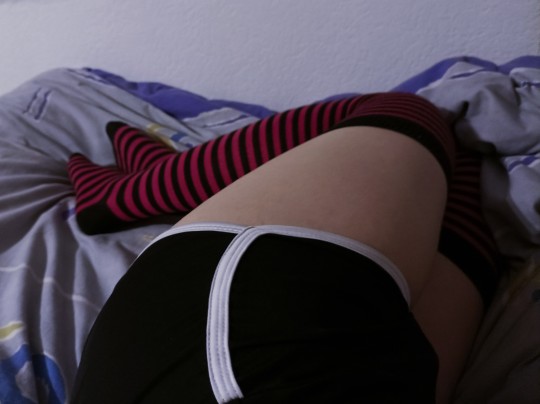
4 notes
·
View notes
Text
Posting my impulsive ADHD thoughts is WAY too easy on this app
0 notes
Text
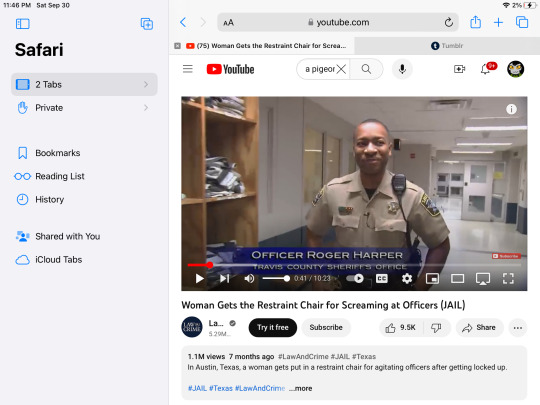
#Just about the amount of time until nigurdi is a retard and nobody wants to feed them#Kardashian drama#Landspace#ease of access#Gasoline#texas seaworls hookers
0 notes
Text
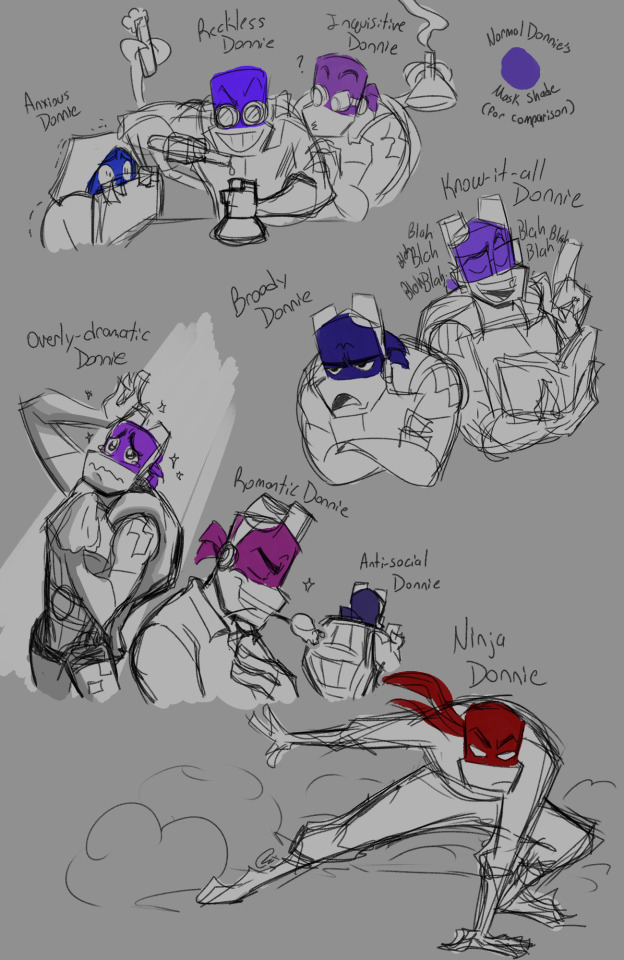
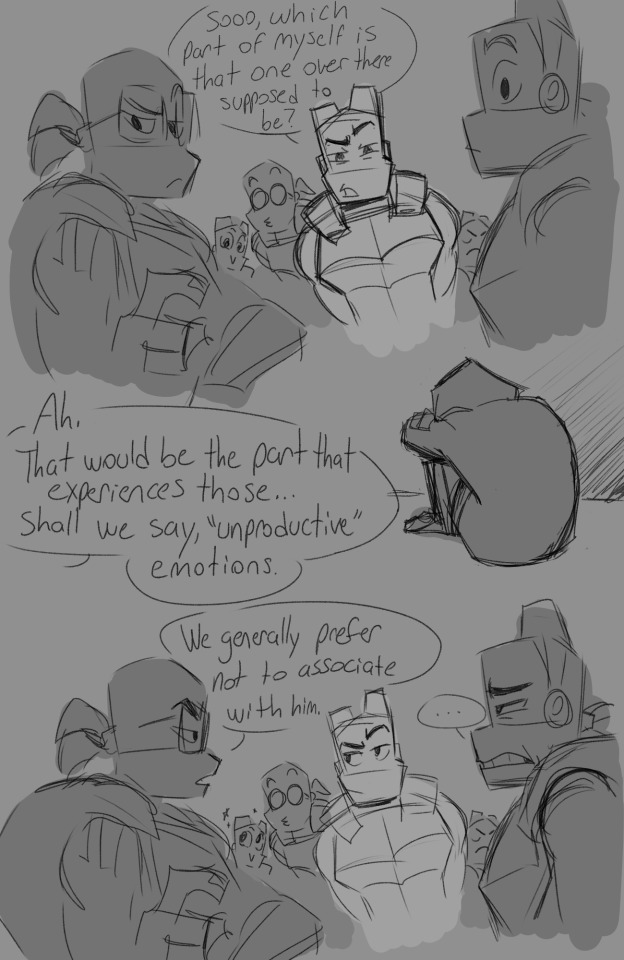
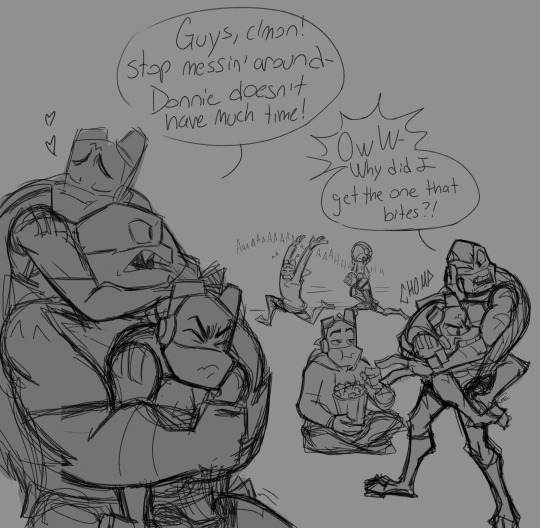
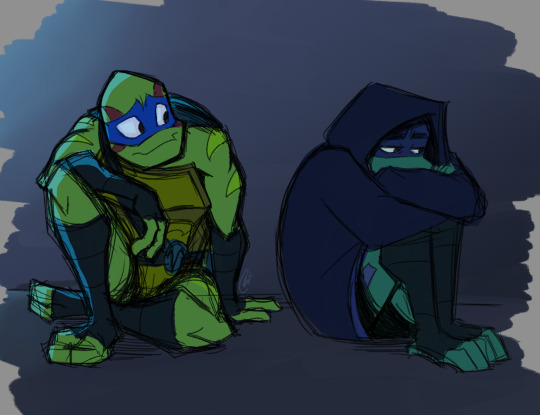
I had an idea for a one-off Rise episode plot and just wanted to quickly sketch up some visuals for it.
The plot goes as follows:
Donnie attempts to invent a cloning machine and, due to some kind of science-y mishap, ends up cloning himself...a lot. But there's a catch to this - the clones aren't exact copies of Donnie, they each possess just ONE of the various facets of his personality (i.e. brainy, broody, sarcastic, passionate, dramatic, mischievous, etc.) and a small portion of his mystic powers. Don tries his darnedest to keep the whole situation under wraps while he searches for a way to fix it, but some of the more rambunctious Donnies quickly escape and begin stirring up trouble in the Lair, so it doesn't stay a secret for very long.
To make matters worse - the real Donnie starts to slowly disappear (something having to do with his existence being divided among the Donnies or blahblahblah fake science explanation). So, while he and the scientist Donnies continue to look for a way to reverse the cloning effect, his brothers and Co. set to work gathering up all the other Donnies so they can put them back where they belong and keep Donnie Prime™ from vanishing.
Hilarity, wholesomeness (and some mild angst) ensues.
(Note: I meant to include April in that second-to-last image, but ran out of room. Just know that she, Splinter, and probably Casey Jr. are all there, as well.)
#I always love plots that have a healthy mix of whimsy and emotional weight. Bonus for DT bonding.#rottmnt#rise of the tmnt#rise of the teenage mutant ninja turtles#disaster twins#rottmnt donnie#rise donnie#donatello hamato#rottmnt leo#rise leo#leonardo hamato#technically all the boys are in there but I'll just tag the ones with the most focus...esp since mikey's tiny lol#fanart#concept art#chiscribbs#Fun game idea for the tag-readers: what name would you give this ep if it were real? I'm eagerly awaiting suggestions.#shades of purple (rottmnt)#<- added in post for ease of access
4K notes
·
View notes
Text
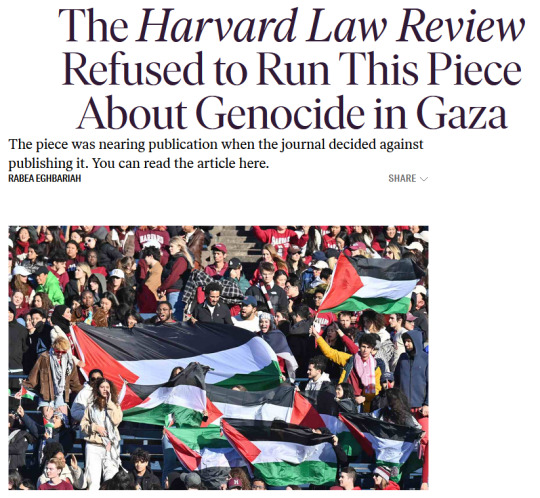
Title & subtitle:
[Nov. 21] The Harvard Law Review Refused to Run This Piece About Genocide in Gaza: The piece was nearing publication when the journal decided against publishing it. You can read the article here.
Article text:
On Saturday, the board of the Harvard Law Review voted not to publish “The Ongoing Nakba: Towards a Legal Framework for Palestine,” a piece by Rabea Eghbariah, a human rights attorney completing his doctoral studies at Harvard Law School. The vote followed what an editor at the law reviewdescribed in an e-mail to Eghbariah as “an unprecedented decision” by the leadership of the Harvard Law Review to prevent the piece’s publication.
Eghbariah told The Nation that the piece, which was intended for the HLR Blog, had been solicited by two of the journal’s online editors. It would have been the first piece written by a Palestinian scholar for the law review. The piece went through several rounds of edits, but before it was set to be published, the president stepped in. “The discussion did not involve any substantive or technical aspects of your piece,” online editor Tascha Shahriari-Parsa, wrote Eghbariah in an e-mail shared with The Nation. “Rather, the discussion revolved around concerns about editors who might oppose or be offended by the piece, as well as concerns that the piece might provoke a reaction from members of the public who might in turn harass, dox, or otherwise attempt to intimidate our editors, staff, and HLR leadership.”
On Saturday, following several days of debate and a nearly six-hour meeting, the Harvard Law Review’s full editorial body came together to vote on whether to publish the article. Sixty-three percent voted against publication. In an e-mail to Egbariah, HLR President Apsara Iyer wrote, “While this decision may reflect several factors specific to individual editors, it was not brd on your identity or viewpoint.”
In a statement that was shared with The Nation, a group of 25 HLR editors expressed their concerns about the decision. “At a time when the Law Review was facing a public intimidation and harassment campaign, the journal’s leadership intervened to stop publication,” they wrote. “The body of editors—none of whom are Palestinian—voted to sustain that decision. We are unaware of any other solicited piece that has been revoked by the Law Review in this way. “
When asked for comment, the leadership of the Harvard Law Review referred The Nation to a message posted on the journal’s website. “Like every academic journal, the Harvard Law Review has rigorous editorial processes governing how it solicits, evaluates, and determines when and whether to publish a piece…” the note began. ”Last week, the full body met and deliberated over whether to publish a particular Blog piece that had been solicited by two editors. A substantial majority voted not to proceed with publication.”
Today, The Nation is sharing the piece that the Harvard Law Review refused to run.
enocide is a crime. It is a legal framework. It is unfolding in Gaza. And yet, the inertia of legal academia, especially in the United States, has been chilling. Clearly, it is much easier to dissect the case law rather than navigate the reality of death. It is much easier to consider genocide in the past tense rather than contend with it in the present. Legal scholars tend to sharpen their pens after the smell of death has dissipated and moral clarity is no longer urgent.
Some may claim that the invocation of genocide, especially in Gaza, is fraught. But does one have to wait for a genocide to be successfully completed to name it? This logic contributes to the politics of denial. When it comes to Gaza, there is a sense of moral hypocrisy that undergirds Western epistemological approaches, one which mutes the ability to name the violence inflicted upon Palestinians. But naming injustice is crucial to claiming justice. If the international community takes its crimes seriously, then the discussion about the unfolding genocide in Gaza is not a matter of mere semantics.
The UN Genocide Convention defines the crime of genocide as certain acts “committed with the intent to destroy, in whole or in part, a national, ethnical, racial or religious group, as such.” These acts include “killing members of a protected group” or “causing serious bodily or mental harm” or “deliberately inflicting on the group conditions of life calculated to bring about its physical destruction in whole or in part.”
Numerous statements made by top Israeli politicians affirm their intentions. There is a forming consensus among leading scholars in the field of genocide studies that “these statements could easily be construed as indicating a genocidal intent,” as Omer Bartov, an authority in the field, writes. More importantly, genocide is the material reality of Palestinians in Gaza: an entrapped, displaced, starved, water-deprived population of 2.3 million facing massive bombardments and a carnage in one of the most densely populated areas in the world. Over 11,000 people have already been killed. That is one person out of every 200 people in Gaza. Tens of thousands are injured, and over 45% of homes in Gaza have been destroyed. The United Nations Secretary General said that Gaza is becoming a “graveyard for children,” but a cessation of the carnage—a ceasefire—remains elusive. Israel continues to blatantly violate international law: dropping white phosphorus from the sky, dispersing death in all directions, shedding blood, shelling neighborhoods, striking schools, hospitals, and universities, bombing churches and mosques, wiping out families, and ethnically cleansing an entire region in both callous and systemic manner. What do you call this?
The Center for Constitutional Rights issued a thorough, 44-page, factual and legal analysis, asserting that “there is a plausible and credible case that Israel is committing genocide against the Palestinian population in Gaza.” Raz Segal, a historian of the Holocaust and genocide studies, calls the situation in Gaza “a textbook case of Genocide unfolding in front of our eyes.” The inaugural chief prosecutor of the International Criminal Court, Luis Moreno Ocampo, notes that “Just the blockade of Gaza—just that—could be genocide under Article 2(c) of the Genocide Convention, meaning they are creating conditions to destroy a group.” A group of over 800 academics and practitioners, including leading scholars in the fields of international law and genocide studies, warn of “a serious risk of genocide being committed in the Gaza Strip.” A group of seven UN Special Rapporteurs has alerted to the “risk of genocide against the Palestinian people” and reiterated that they “remain convinced that the Palestinian people are at grave risk of genocide.” Thirty-six UN experts now call the situation in Gaza “a genocide in the making.” How many other authorities should I cite? How many hyperlinks are enough?
And yet, leading law schools and legal scholars in the United States still fashion their silence as impartiality and their denial as nuance. Is genocide really the crime of all crimes if it is committed by Western allies against non-Western people?
This is the most important question that Palestine continues to pose to the international legal order. Palestine brings to legal analysis an unmasking force: It unveils and reminds us of the ongoing colonial condition that underpins Western legal institutions. In Palestine, there are two categories: mournable civilians and savage human-animals. Palestine helps us rediscover that these categories remain racialized along colonial lines in the 21st century: the first is reserved for Israelis, the latter for Palestinians. As Isaac Herzog, Israel’s supposed liberal President, asserts: “It’s an entire nation out there that is responsible. This rhetoric about civilians not aware, not involved, it’s absolutely not true.”
Palestinians simply cannot be innocent. They are innately guilty; potential “terrorists” to be “neutralized” or, at best, “human shields” obliterated as “collateral damage”. There is no number of Palestinian bodies that can move Western governments and institutions to “unequivocally condemn” Israel, let alone act in the present tense. When contrasted with Jewish-Israeli life—the ultimate victims of European genocidal ideologies—Palestinians stand no chance at humanization. Palestinians are rendered the contemporary “savages” of the international legal order, and Palestine becomes the frontier where the West redraws its discourse of civility and strips its domination in the most material way. Palestine is where genocide can be performed as a fight of “the civilized world” against the “enemies of civilization itself.” Indeed, a fight between the “children of light” versus the “children of darkness.”
The genocidal war waged against the people of Gaza since Hamas’s excruciating October 7th attacks against Israelis—attacks which amount to war crimes—has been the deadliest manifestation of Israeli colonial policies against Palestinians in decades. Some have long ago analyzed Israeli policies in Palestine through the lens of genocide. While the term genocide may have its own limitations to describe the Palestinian past, the Palestinian present was clearly preceded by a “politicide”: the extermination of the Palestinian body politic in Palestine, namely, the systematic eradication of the Palestinian ability to maintain an organized political community as a group.
This process of erasure has spanned over a hundred years through a combination of massacres, ethnic cleansing, dispossession, and the fragmentation of the remaining Palestinians into distinctive legal tiers with diverging material interests. Despite the partial success of this politicide—and the continued prevention of a political body that represents all Palestinians—the Palestinian political identity has endured. Across the besieged Gaza Strip, the occupied West Bank, Jerusalem, Israel’s 1948 territories, refugee camps, and diasporic communities, Palestinian nationalism lives.
What do we call this condition? How do we name this collective existence under a system of forced fragmentation and cruel domination? The human rights community has largely adopted a combination of occupation and apartheid to understand the situation in Palestine. Apartheid is a crime. It is a legal framework. It is committed in Palestine. And even though there is a consensus among the human rights community that Israel is perpetrating apartheid, the refusal of Western governments to come to terms with this material reality of Palestinians is revealing.
Once again, Palestine brings a special uncovering force to the discourse. It reveals how otherwise credible institutions, such as Amnesty International or Human Rights Watch, are no longer to be trusted. It shows how facts become disputable in a Trumpist fashion by liberals such as President Biden. Palestine allows us to see the line that bifurcates the binaries (e.g. trusted/untrusted) as much as it underscores the collapse of dichotomies (e.g. democrat/republican or fact/claim). It is in this liminal space that Palestine exists and continues to defy the distinction itself. It is the exception that reveals the rule and the subtext that is, in fact, the text: Palestine is the most vivid manifestation of the colonial condition upheld in the 21st century.
hat do you call this ongoing colonial condition? Just as the Holocaust introduced the term “Genocide” into the global and legal consciousness, the South African experience brought “Apartheid” into the global and legal lexicon. It is due to the work and sacrifice of far too many lives that genocide and apartheid have globalized, transcending these historical calamities. These terms became legal frameworks, crimes enshrined in international law, with the hope that their recognition will prevent their repetition. But in the process of abstraction, globalization, and readaptation, something was lost. Is it the affinity between the particular experience and the universalized abstraction of the crime that makes Palestine resistant to existing definitions?
Scholars have increasingly turned to settler-colonialism as the lens through which we assess Palestine. Settler-colonialism is a structure of erasure where the settler displaces and replaces the native. And while settler-colonialism, genocide, and apartheid are clearly not mutually exclusive, their ability to capture the material reality of Palestinians remains elusive. South Africa is a particular case of settler-colonialism. So are Israel, the United States, Australia, Canada, Algeria, and more. The framework of settler colonialism is both useful and insufficient. It does not provide meaningful ways to understand the nuance between these different historical processes and does not necessitate a particular outcome. Some settler colonial cases have been incredibly normalized at the expense of a completed genocide. Others have led to radically different end solutions. Palestine both fulfills and defies the settler-colonial condition.
We must consider Palestine through the iterations of Palestinians. If the Holocaust is the paradigmatic case for the crime of genocide and South Africa for that of apartheid, then the crime against the Palestinian people must be called the Nakba.
The term Nakba, meaning “Catastrophe,” is often used to refer to the making of the State of Israel in Palestine, a process that entailed the ethnic cleansing of over 750,000 Palestinians from their homes and destroying 531 Palestinian villages between 1947 to 1949. But the Nakba has never ceased; it is a structure not an event. Put shortly, the Nakba is ongoing.
In its most abstract form, the Nakba is a structure that serves to erase the group dynamic: the attempt to incapacitate the Palestinians from exercising their political will as a group. It is the continuous collusion of states and systems to exclude the Palestinians from materializing their right to self-determination. In its most material form, the Nakba is each Palestinian killed or injured, each Palestinian imprisoned or otherwise subjugated, and each Palestinian dispossessed or exiled.
The Nakba is both the material reality and the epistemic framework to understand the crimes committed against the Palestinian people. And these crimes—encapsulated in the framework of Nakba—are the result of the political ideology of Zionism, an ideology that originated in late nineteenth century Europe in response to the notions of nationalism, colonialism, and antisemitism.
As Edward Said reminds us, Zionism must be assessed from the standpoint of its victims, not its beneficiaries. Zionism can be simultaneously understood as a national movement for some Jews and a colonial project for Palestinians. The making of Israel in Palestine took the form of consolidating Jewish national life at the expense of shattering a Palestinian one. For those displaced, misplaced, bombed, and dispossessed, Zionism is never a story of Jewish emancipation; it is a story of Palestinian subjugation.
What is distinctive about the Nakba is that it has extended through the turn of the 21st century and evolved into a sophisticated system of domination that has fragmented and reorganized Palestinians into different legal categories, with each category subject to a distinctive type of violence. Fragmentation thus became the legal technology underlying the ongoing Nakba. The Nakba has encompassed both apartheid and genocidal violence in a way that makes it fulfill these legal definitions at various points in time while still evading their particular historical frames.
Palestinians have named and theorized the Nakba even in the face of persecution, erasure, and denial. This work has to continue in the legal domain. Gaza has reminded us that the Nakba is now. There are recurringthreats by Israeli politicians and other public figures to commit the crime of the Nakba, again. If Israeli politicians are admitting the Nakba in order to perpetuate it, the time has come for the world to also reckon with the Palestinian experience. The Nakba must globalize for it to end.
We must imagine that one day there will be a recognized crime of committing a Nakba, and a disapprobation of Zionism as an ideology brd on racial elimination. The road to get there remains long and challenging, but we do not have the privilege to relinquish any legal tools available to name the crimes against the Palestinian people in the present and attempt to stop them. The denial of the genocide in Gaza is rooted in the denial of the Nakba. And both must end, now.
#palestine#uspol#the nation#geopol#long post#the article is paywalled so here it is for ease of access#📁.zip
488 notes
·
View notes
Text












⟟ Updated 『TRIP』 album directory. (& misc helpful ensemblesongs tags!)
The previous post had exceeded the limit of links, and, reblogs don't update on their own, so this might be useful! This post was very tedious to prepare & write by hand, but I live to make lives easier. So!
The amount of links may be overwhelming to some and useful to others. This post will be updated from now on regarding the last few trip albums in particular, the old one will go untouched...🖋 for the old post, look here.
Unrelated to albums: shuffles | solos | cover songs | fusion units | engirls | former valkyrie | former fine or fine-o | the five eccentrics or altered | DEADMANZ
☆ Crazy:B TRIP album | Unit Tag
Rinne Amagi | HiMERU | Kohaku Oukawa | Niki Shiina
☆ Ra✽bits TRIP album | Unit Tag
Tomoya Mashiro | Nito Nazuna | Hajime Shino | Mitsuru Tenma
☆ Double Face TRIP album | Unit Tag (MaM)
Madara Mikejima | Kohaku Oukawa
☆ fine TRIP album | Unit Tag
Eichi Tenshouin | Wataru Hibiki | Tori Himemiya | Yuzuru Fushimi
☆ Valkyrie TRIP album | Unit Tag
Shuu Itsuki | Mika Kagehira
☆ ALKALOID TRIP album | Unit Tag
Hiiro Amagi | Aira Shiratori | Mayoi Ayase | Tatsumi Kazehaya
☆ 2wink TRIP album | Unit Tag
Hinata Aoi | Yuuta Aoi
☆ UNDEAD TRIP album | Unit Tag
Rei Sakuma | Koga Oogami | Kaoru Hakaze | Adonis Otogari
☆ AKATSUKI TRIP album | Unit Tag
Keito Hasumi | Kuro Kiryuu | Souma Kanzaki
☆ Trickstar TRIP album | Unit Tag
Hokuto Hidaka | Subaru Akehoshi | Mao Isara | Makoto Yuuki
☆ RYUSEITAI TRIP album (Yet to release!) | Unit Tag
Tetora Nagumo | Shinobu Sengoku | Midori Takamine | Kanata Shinkai | Chiaki Morisawa
Switch TRIP album (unannounced!) | Unit Tag
Natsume Sakasaki | Tsumugi Aoba | Sora Harukawa
☆ Knights TRIP album (unannounced!) | Unit Tag
Tsukasa Suou | Leo Tsukinaga | Izumi Sena | Ritsu Sakuma | Arashi Narukami
☆ Eden TRIP album (unannounced!) | Unit Tag | Adam & Eve
Nagisa Ran | Ibara Saegusa | Hiyori Tomoe | Jun Sazanami
#☆ Once more this has been done for ease of access :-) I'll also be tagging so it can be navigated easily in case.#crazy:b#ra*bits#double face#fine#valkyrie#alkaloid#2wink#undead#akatsuki#ryuseitai#trickstar#man at that point you can look it up yourself. actually.#ex-fine#five eccentrics#ex-valkyrie#<- what else do you want.#💭#enstars
151 notes
·
View notes
Note
What IS wheel of doom. What happens to them..
It's my take on a redemption round! After every main bracket round, we cut to the Wheel of Doom, where the losers are randomly assigned an opponent. If you win your round, you move on to the next. If you lose your round, you are permanently eliminated. The ending prize for the last loser standing is a slot in the Finals, against the 2 Semifinals winners
552 notes
·
View notes
Note
You don't know how much joy I got from reading about Alejandro and Rudy. I'm a wild fucking animal over your writing normally, but Alejandro and Rudy???? Literally screaming. Barking tearing apart my furniture with my bare teeth. Just a couple scraps more??? Who is their darling I need to know, genuinely frothing at the mouth rn.
Yes barking and screaming and biting, I love these boys. No clue who their darling is but boy is she having a wild time.
Also Minors Do Not Interact with this
Rudy pushes your head down Alejandro's cock. The praises he whispers in your ear do nothing to stop you from gagging around the thick length stretching out your throat. They only serve to make you rock against the fingers he's pushed up under your skirts and between your legs. The rough calloused hands of the man kneeling behind you stroke your wet cunt, deliberate and slow, a back and forth that leaves you desperate.
"What a good girl," Rudy coos in your ear, "such a good toy for us." You try to blink some of the tears from your eyes as he pulls your head back, let's you get a breath, your tongue licking at the drooling head of Alejandro's cock.
"Look at you, fucking yourself on his fingers while you suck my cock," Alejandro purrs. You know you must look pathetic, your lips red and stretched around his girthy cock, tongue greedily tracing the veins each time Rudy pushes you down, the shallow breaths you take when your nose is buried in the dark pubes at the base of Alejandro's cock. Your senses are utterly dominated by the both of them. You think you were worried about the wrong man.
Rudy's fingers slides into you and you whine around Alejandro. Your hands grip his thick thighs, feel the muscles tense, as you push back onto the thick digits. Again you find Rudy to be frustratingly deliberate, slow as he drags his fingers in and out of your sopping cunt, stretching you as Alejandro fucks your throat. Apparently having grown frustrated with the slow pace Rudy set, Alejandro pulls back and thrusts into your mouth at a brutal pace. Your head spins from the rough treatment, eyes rolling at Rudy takes the opportunity to press torturously against the soft spongy spot near your entrance.
It feels like you're melting between your legs, slick clinging to your thighs and dripping off Rudy's fingers, you're so close. His hand leaves your head and you hear the rustle of fabric behind you before he takes his fingers from you. You whine again, wiggle your hips for any form of stimulation, anything to push you over the edge, to take your mind from the ache in your jaw, the burn in your throat, the smack of Alejandro's balls against your chin. Rudy presses his cock against your dripping hole and eases you down onto it with a satisfied groan. Your impatience gets the better of you, and you slam your hips back against him, taking his thick cock to the base in one motion. Your eyes roll and you cum on his cock as it splits you open.
"Naughty girl," Alejandro chides from above you, Rudy hums, keeping your hips held still as your walls flutter around him.
"Maybe you don't get who's in charge yet," Rudy mumbles, his lips brushing your ear, "I think a lesson might be in order, what do you think Marshal?"
"My thoughts exactly." Alejandro smiles, and pushes your head down, holding you with your lips stretched around the base of his cock, "If you wants to be full so bad, you can just sit there and take it."
#using my knowledge of historical fashion for smut#1870s drawers were split in the middle for “ease of access”#that's how historians say bathroom time#cod x reader#alejandro x reader#alejandro vargas#rodolfo x reader#rodolfo parra#rudy x reader#los vaqueros#x reader#marshal!Alejandro#ranger!rodolfo#1870s!Cowboy
353 notes
·
View notes
Text

Candy Mania
A little nervous about posting this..
I always thought this approach didnt suit fanart very well. its a little out there. I dont want to create separate styles for my personal illustration practice and this kind of thing. I wanted to somehow merge the two and create a spectrum of personal narrative work to fanart and "for fun and hobby" things.
How do you guys think this compares to my other aftg pieces style wise? At the end of the day I decided to do whatever I want but i am still curious about yalls thoughts and would appreciate some insight!
Yeehaw.
#aftg fanart#andrew minyard#aftg art#all for the game#aftg#nora has no idea how mania works and how meds work or anything about psychology but i think somehow she captured his suffering well#I love reading headcanons about how his sugar addicition works and why#like the idea that it might be because growing up he needed access to a quick energy source due to lack of food#it could also be a blood sugar thing that eases his “hangriness” and quell his irritability
362 notes
·
View notes
Text
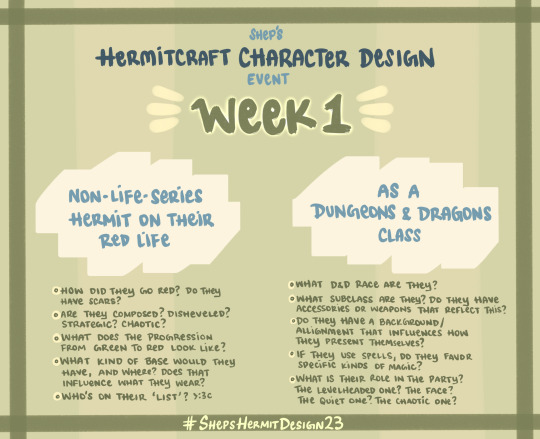
YAY Week 1 prompts in-detail are here! The Hermitcraft Character Design Event arrives! Feel free to go wild with these prompts as inspiration, or use the above suggestions to help form ideas for creating character designs, drawing, writing, scene-making, anything you like!
1.] Non-Life-Series Hermit on their Red Life: death-game-ify your blorbo of choice! Imagine your character as though they were taking place in one of the Traffic SMP Life Series, and how they may look or have ended up on their Red Life. You could go for one series specifically, or just go for the vibes!
2.] As a D&D Class: Throw your blorbo into RPG Dungeons & Dragons— is it that your mcyt character has been dropped into the world of D&D? Is it an AU? Is it D&D mechanics and features in the world of Minecraft? Up to you!
Reminders: Anyone is welcome to participate, in whatever way and however much! Feel free to apply these prompts to any mcyt blorbo of your choosing! Feel free to use the tag #ShepsHermitDesign23 and/or @me in your posts! I look forward to seeing what everyone creates!
#hermitcraft#hermitcraft fanart#trafficsmp#life series#drawing event#drawing challenge#drawing prompt#mcyt#shepshermitdesign23 faq#shepshermitdesign23#pinned for ease of access!
317 notes
·
View notes
Text
dms are open if you want more ;3

4 notes
·
View notes
Text
reposting this because he turned reblogs off after 100 notes what a fucking loser

+ extra tags that i would have "prev tag"ed otherwise, i wanted to include em still

#dude i HATE this site rn#the only things keeping me here are my friends being here + ease of access (ie the app). if that werent the case id be 100% on my own site#long post#photomatt#1dk rambles
45 notes
·
View notes
Text
I had this moment last night where I was sitting on a wall outside the back door of the Theatre Royal waiting for my spouse to come and pick me up, and we had just seen this incredible play about breaking and transcending different kinds of constraints, and I feel like a terrible disabled person because the night was cool and it was quiet and all I could think of was transforming into a bird and flying into that dark sky full of possibility, and leaving this shitty and constrained body behind.
My dark secret is that every disabled person talks about their wheelchair as an instrument that has made life much better for them, and, honestly, the main thing they do for me is bring me up against environmental limitations of accessibility constantly.
And the hardest thing I find about it all is that every fucking set of accommodations involves talking to people. It involves phone calls and waiting around to be collected and having to talk to people the whole time you’re doing that. And so often having to talk to people I don’t know is just an *immense* energy sink for me and when I really need a accommodations that’s when I *really* don’t have that. And then whoever is meant to be providing those “helpful accommodations” starts getting angry and aggressive and that’s how you end up nearly getting thrown into train tracks.
I hurt myself so much because so often it is easier to stumble along and fall and crawl with my crutches or even my rollator sometimes than it is to have to deal with a taxi driver talking an entire journey which can easily mean a barrage of racism or misogyny or transphobia, or incredibly intrusive questions about my disability, and by the time I get to the place I’m meant to be I’m beyond spent.
The way you can book ordinary tickets for things with a few clicks online but accessible ones mean long, long, spoon-draining conversations with people who don’t even have accurate information about the place you are going is an access barrier no one ever thinks of.
#disabled#disability#disableism#chronic illness#chronic pain#chronic fatigue#autistic adult#accessibility#inaccessibility#inaccessible environment#no one ever seems to think disabled people deserve the sort of ease and convenience other people take for granted in literally anything#and things that are ease and convenience to abled people can actually be incredibly necessary to a disabled person
129 notes
·
View notes
